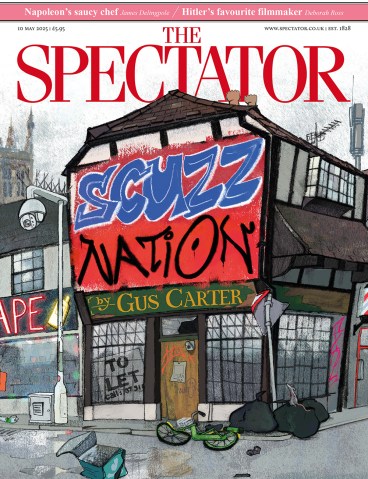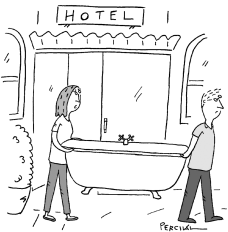
Do you remember the great Adolescence debate? It may feel like an age ago, but way back in March Netflix released a drama about a 13-year-old caucasian boy who stabs a female classmate to death. For a time it was one of the most watched shows on Netflix.
British politicians and opinion writers spent weeks chewing over this entirely fictional programme. What could we learn about the epidemic of white 13-year-old boys from decent two-parent families killing their female schoolmates? Should everyone watch it? Should anyone who hasn’t watched it be hounded from public life? Soon Keir Starmer was convening a roundtable meeting in Downing Street about it: ‘As a father, watching this show with my teenage son and daughter, I can tell you it hit home hard,’ he told the meeting, which included Adolescence’s producer and writer.
By April the Prime Minister had announced that Netflix would make the drama free to view for secondary schools so that pupils could better understand ‘the impact of misogyny, dangers of online radicalisation and the importance of healthy relationships’. At this stage the political and media class were in full stampede. The Guardian ran a piece entitled: ‘Keir Starmer praised Adolescence. Now he needs to show he’s learned from it.’
Not watching Adolescence was, for a time, almost a disqualifying act. In an interview on BBC Breakfast , Conservative leader Kemi Badenoch admitted that she ‘probably won’t’ be watching ‘a film on Netflix’ because she was touring the country ahead of the local elections. Host Naga Munchetty was appalled. ‘Everyone is talking about it,’ Munchetty stressed, making another good argument for why no one should turn on the television in the morning. Or almost ever.
Because as Badenoch tried to emphasise, the drama is fiction. And I would add that it is not just fiction but a rather comfortable fiction. There are epidemics of knife crime in the UK, but none of them involve 13-year-old white boys from stable homes murdering female contemporaries because their brains have been warped by online influencers.
A major source of knife crime in London is black teenagers stabbing other black teenagers because they dared to step into the territory of – or otherwise diss – a rival gang. Last year there was a knife-related murder most days of the year in England and Wales, and more than 3,500 hospital admissions for knife attacks involving weapons ranging from kitchen knives to machetes. In the past year the Metropolitan Police has recorded 15,182 knife crimes in London, an increase on the previous year. These included the murder of 14-year-old Kelyan Bokassa, who was stabbed to death on a bus in Woolwich in January.
Surely this would be the sort of thing a dramatist might be interested in? But I suppose that the structure of companies such as Netflix, and certainly the structure of our political debate, does not incline to dwelling on uncomfortable subjects when comparatively comfortable fictional ones are there for the taking.
The structure of our political debate does not incline to dwelling on uncomfortable subjects
As though to prove this thesis just consider the character of Lucy Powell. Sadly, the member for Manchester Central is not a fictional creation. She is a 50-year-old Labour MP whose castigating and morally superior tone has delighted the nation ever since she was sent to parliament by the electorate in 2012. She is currently leader of the House of Commons.
Last week Ms Powell was on Any Questions? on BBC Radio 4. During the discussion the conservative writer Tim Montgomerie mentioned a recent Channel 4 programme called Groomed: A National Scandal. This was a fine and long overdue work of documentary – not drama – in which Channel 4 interviewed five British women who as young girls had been groomed (as in systematically and repeatedly raped) by men of mainly Pakistani Muslim origin.
With this having bubbled away as a scandal in British public life for a quarter of a century now, you might have thought that the stories of the thousands of young women who have been abused by what must be many thousands of men would be a real national scandal. And one which by now would be such familiar, well-trodden terrain that there is hardly anything new to say. Yet it is a demonstration of the disgrace upon a disgrace of the way this country has behaved in this century that the Channel 4 documentary was in fact not just heartbreaking but genuinely revelatory.

Unfortunately, the moment that Montgomerie raised the question of Groomed, the morally superior lungs of Lucy Powell burst forth. Speaking in a tone so high-handed and self-righteous it would make Emily Thornberry coo, Powell said: ‘Oh, we want to blow that little trumpet now, do we? Let’s get that dog whistle out, shall we, yeah?’
It was an astonishing outburst. And although everyone – even Labour MPs – should be allowed the occasional infelicitous turn of phrase, or brain fart, Powell’s explosion was none of these things. Her rage was directed at the notion of even mentioning the biggest child abuse scandal in British history. A woman who doubtless thinks she is a decent and moral human being clearly believed that bringing up the industrial-scale gang rape of British children is the actual disgrace, rather than the scandal itself.
Ms Powell has since apologised for her remarks, but the outburst didn’t come from nowhere. After all, in January her party leader – our Prime Minister– said that calls for another inquiry into the rape gangs scandal came only from people who ‘want to jump on a bandwagon of the far-right’.
These instincts are, naturally, linked. Fictions, in modern Britain, must be strenuously maintained. Especially when the alternative course would be to face up to facts.








Comments